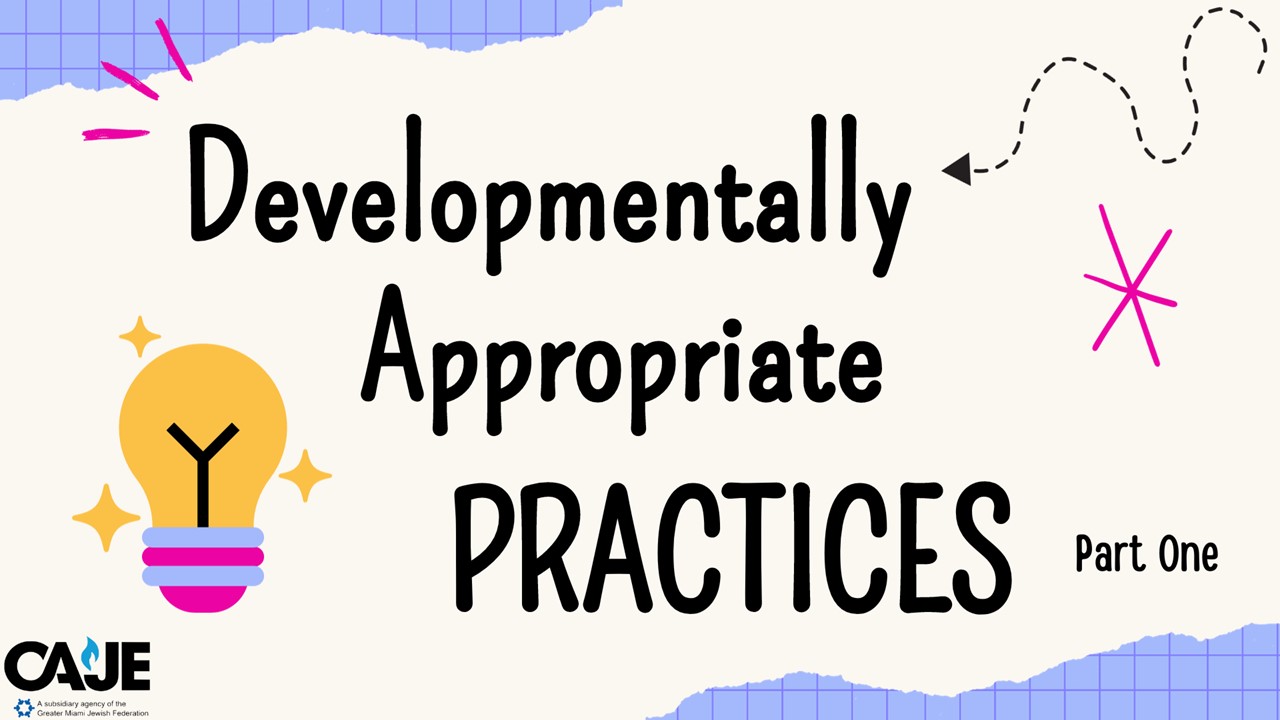Nearly 150 ECE Teachers Learn with CAJE!
Posted on 11/10/2023 @ 05:00 AM

“Every teacher needs to improve, not because they are not good enough, but because they can be even better.”
- Dylan Wiliam, educator
Early childhood educators from across Miami-Dade came together last Thursday night for an evening of learning, connection, and support.
Over 145 dedicated teachers and administrators spent two hours learning on Zoom about the most current developmentally appropriate teaching practices in early childhood education.
Facilitated by Yehudis Smith, CAJE’s Director of Early Childhood and Congregational Education, this workshop marked the first of CAJE’s Jewish Early Childhood Professional Network’s (JECPN) 3-part series on the topic.
The JECPN serves over 28 Jewish early childhood programs in the area, providing them with professional development, support, networking opportunities, and more.
One of CAJE’s many goals is to elevate the field of early childhood education through professionalization and empowerment.
Studies have shown that the most effective way to achieve this is through an ongoing flow of teacher training, follow-up for accountability and ongoing support systems.
At the completion of this 3-part workshop series, CAJE will also be providing monthly support sessions for all of the over 600 early childhood educators in the JECPN network.
Here’s a look at the first Developmentally Appropriate Practices workshop:

Opening our minds to new ways of approaching child development and education can be daunting, which is why we open each and every workshop with a commitment: to open up our minds to learn something new. This helps set the tone and intention for the rest of the training.

The first step in improving the way we teach young children is to explore and understand the fundamental ideas of developmentally appropriate practices in early childhood education.
How do children develop?
What role do culture and genetics play in their development?
What type of instruction is most effective in clearing the learning pathways in the brain?
What is holistic learning and why is it essential in early childhood education?
How important is learning through play – is play ever just play?


The final two workshops in this series will cover a variety of developmental themes including developmentally appropriate communication and discipline, how to effectively observe and assess young children in the classroom, and the importance of teaching to every type of learner.
This enormous response from teachers and administrators demonstrates the ongoing thirst for professional development among our ECE educators.
And it also validates their trust in and appreciation for the expertise of our CAJE staff!
For more information about CAJE’s Early Childhood Education initiatives, please contact Yehudis Smith yehudissmith@caje-miami.org




